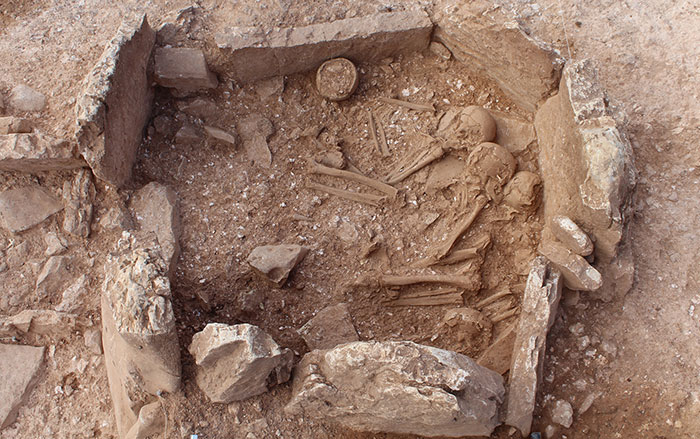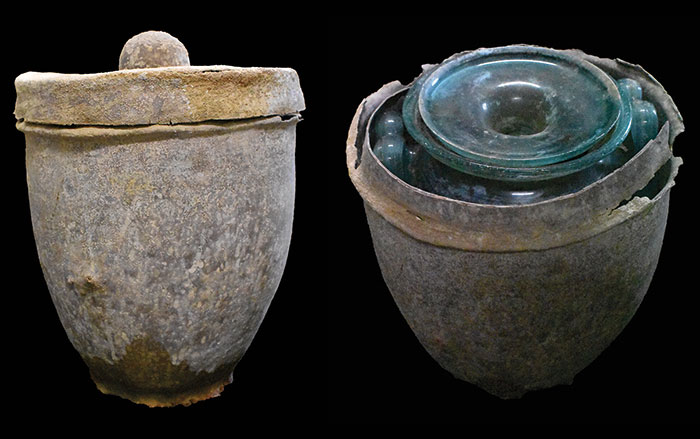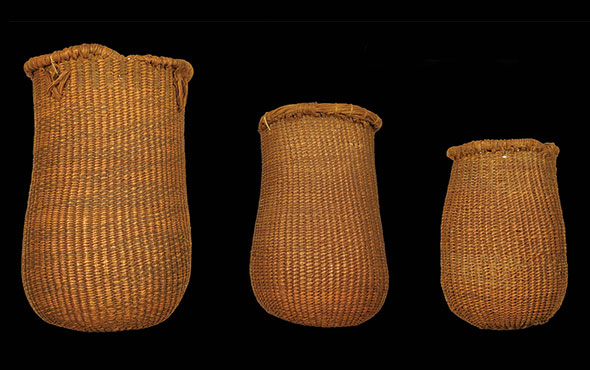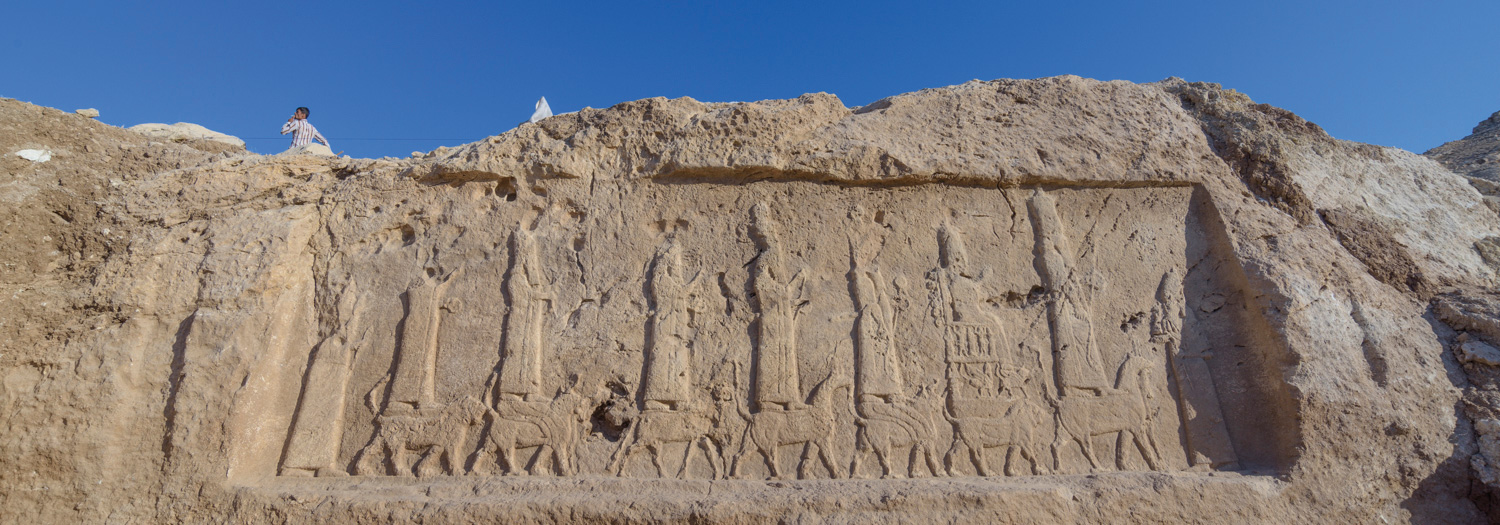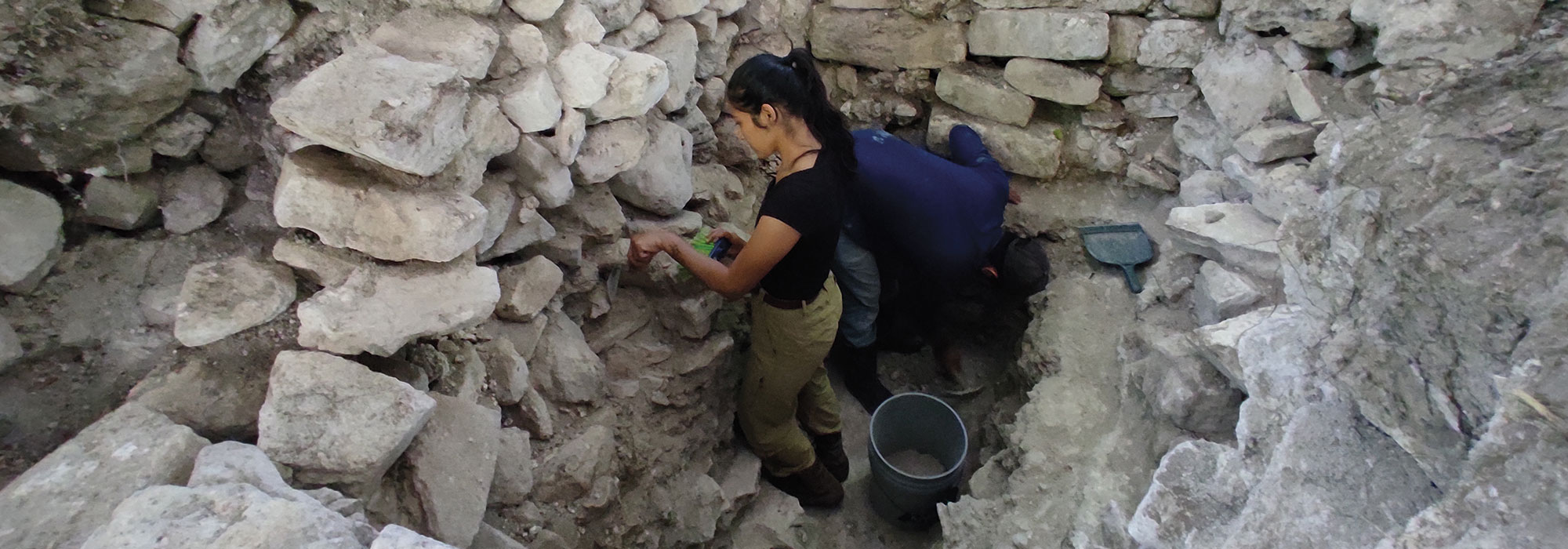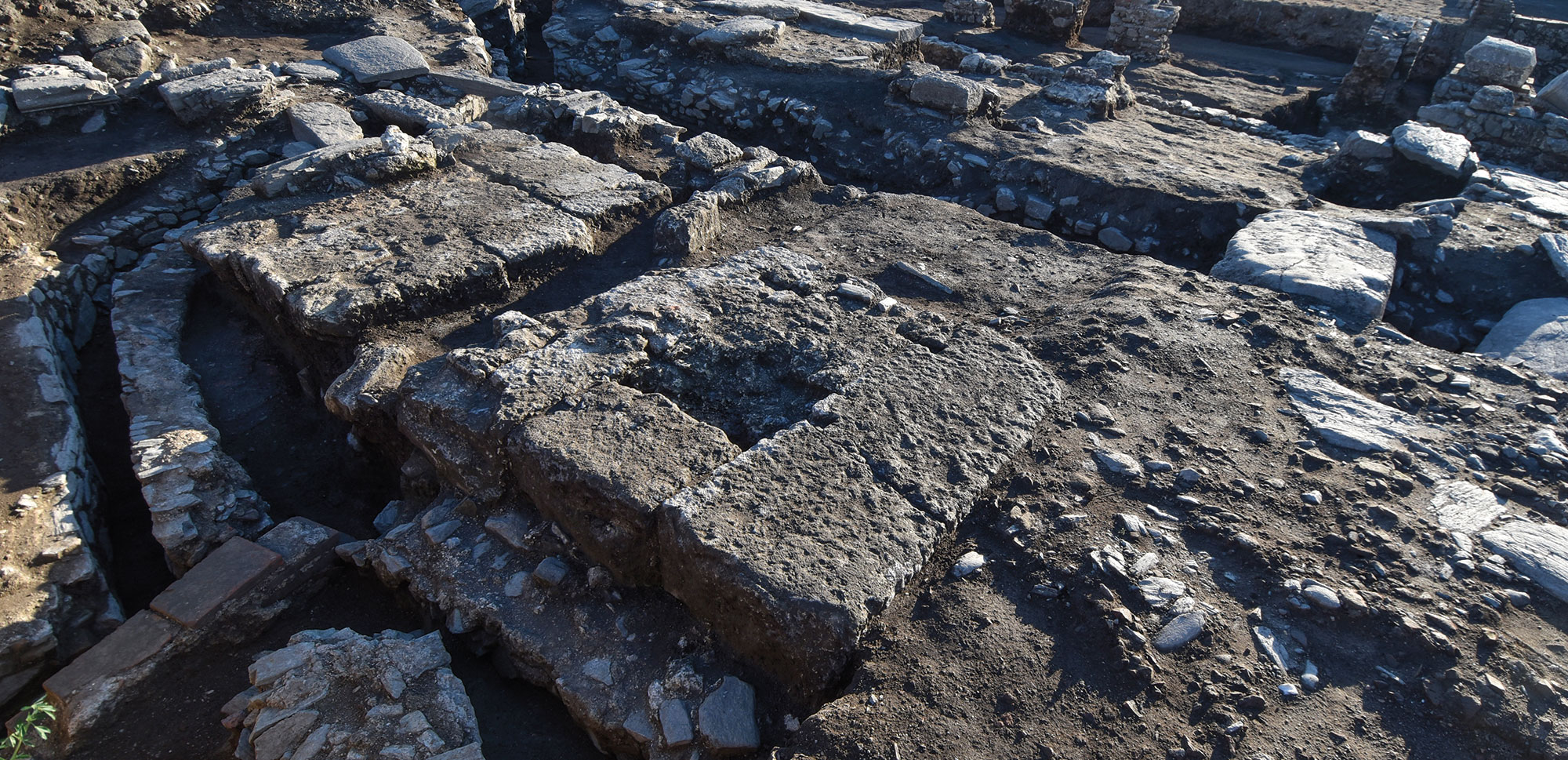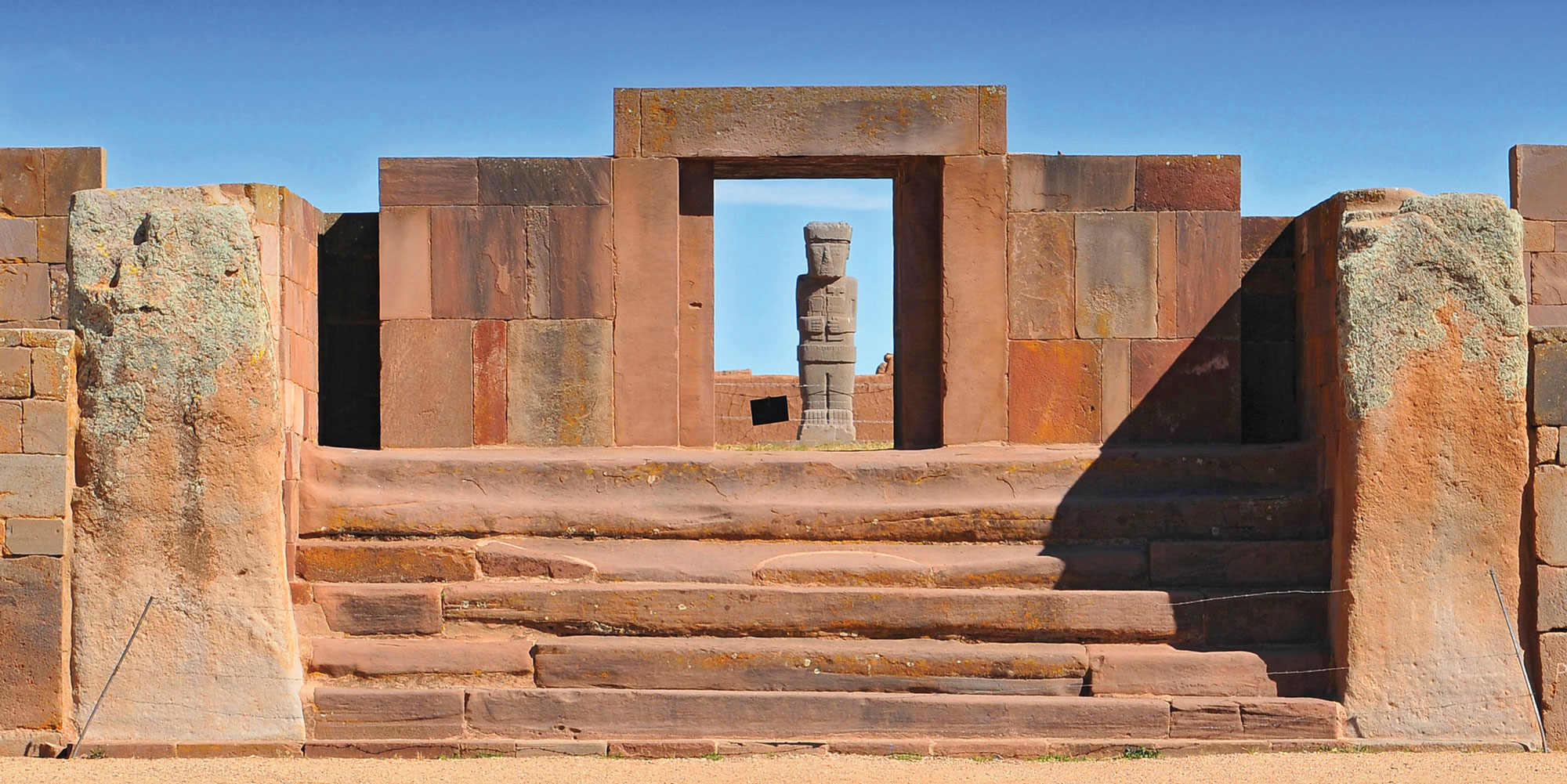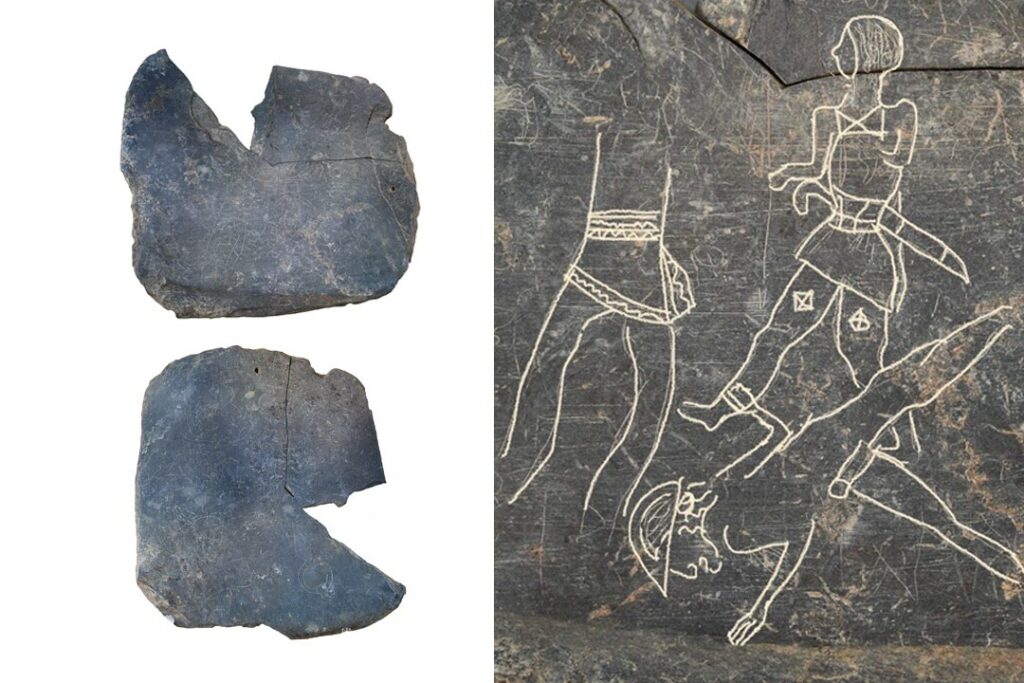
BARCELONA, SPAIN—An engraved slate tablet featuring battle scenes and a border of paleohispanic script has been unearthed in southwestern Spain at the site of Casas del Turuñuelo, according to a Live Science report. The site belongs to the Tartessos people, who are thought to have settled in the Iberian Peninsula in the eighth century B.C. and disappeared from the archaeological record by the fourth century B.C. A sequence of 21 signs remains around the perimeter of the eight-inch-long slate, which has a missing piece. “At lease [six] signs would have been lost in the split area of the piece, but if it were completely symmetrical and the signs completely occupied three of the four sides of the plate, it could reach 32 signs,” said Joan Ferrer I Jané of the University of Barcelona. The images on the slate show three warriors in battle, providing information about Tartessos clothing, weapons, and headdresses, added Esther Rodríguez González of the Institute of Archaeology of Mérida. The researchers think the artist may have been practicing on the slate before carving a piece of gold, ivory, or wood. For more on the archaeology of the Iberian Peninsula, go to "The Visigoths' Imperial Ambitions."



